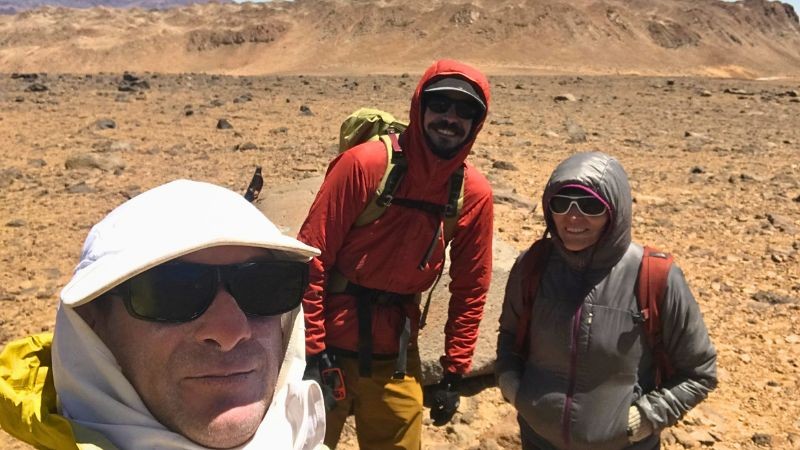Mike Kaplan, a research professor in the Division of Geochemistry at Columbia’s Lamont Doherty Earth Observatory (LDEO), recently spent approximately two weeks conducting fieldwork in northern Chile, specifically in the Atacama and altiplano areas. The field team included Carolina Muñoz-Sáez, Assistant Professor at Cornell University and Adjunct Associate Research Scientist at LDEO; Alida Pérez Fodich Assistant Professor at University of Chile, and Rodrigo Soteres Researcher at the Centro de Investigación Gaia Antártica at the University of Magallanes, along with their respective students.
During this expedition, the team carried out various fieldwork activities, including the collection of samples for a relatively new project along with LDEO/Columbia University researchers Gisela Winckler and Joerg Schaefer. The project aims to investigate how glaciers, landscapes, climates, hydrothermal systems, and even volcanism have changed in the past. This interdisciplinary endeavor, supported by the U.S. National Science Foundation, unites experts from different institutions in both the United States and Chile.
The team's primary focus is to explore potential connections between past glacier changes and hydrothermal or volcanic activities. While the impact of glacial activity on volcanic and hydrological systems is well-documented worldwide, the response of hydrothermal systems remains largely unexplored. Although there are currently few glaciers in the Atacama and Altiplano, larger glaciers existed in certain areas during colder Ice Age climates.
“The Chilean Atacama Desert and Altiplano provide an excellent natural laboratory to investigate interactions between all these geological processes and past climate changes, including the expansion and retreat of glaciers,” noted Kaplan. He emphasized that the study may also contribute to a better understanding of the hazards associated with hydrothermal systems.
This collaborative effort underscores the significance of international partnerships in advancing scientific knowledge and addressing critical questions related to Earth's geological history. After completing his fieldwork, Mike Kaplan made a stop at the Santiago Center's office on his way back to New York, sharing insights with the team about his research.

